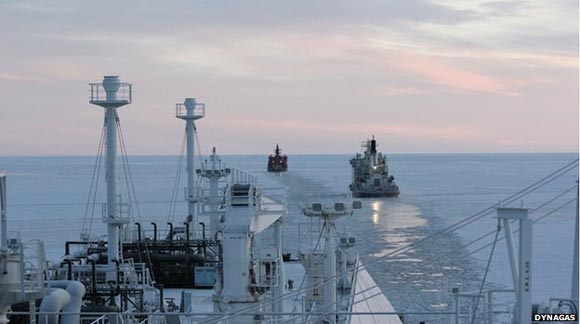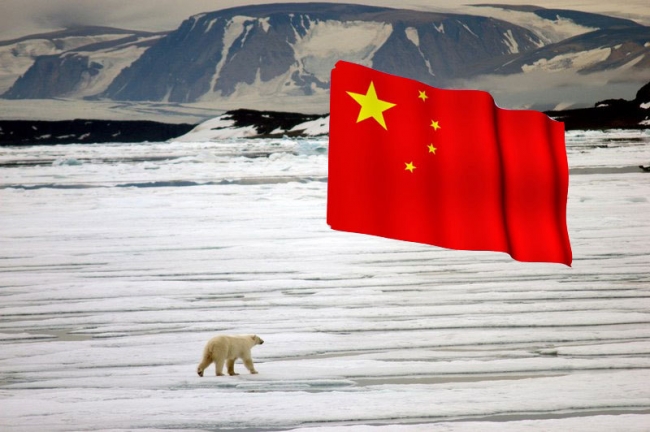Several times a year, Washington is frozen by the political negotiations – or lack thereof – that accompany the matter of raising America’s borrowing limit. The debt ceiling is important because it represents the fiscal room that the American government has to meet its financial obligations at home and abroad. If an agreement is not reached, the United States could conceivably default on its loans – a threat which entails far-reaching consequences for the global economy.
The greatest danger of the wrangling surrounding the US debt ceiling is that it compromises the integrity of the American dollar as the medium of trade for strategically important services, resources and materials. The stability and predictability of the value of the USD is a barometer for trade in oil, gold and other minerals, the prices of stocks and bonds, market trends and global interest rates.
[captionpix align=”left” theme=”elegant” width=”410″ imgsrc=”http://natoassociation.ca/wp-content/uploads/2013/10/foreign-debt.png” captiontext=”An increasingly turbulent USD is a significant threat to the currency reserves of countries such as China and Japan.”]
The importance of the USD was most recently demonstrated in the apprehension that overtook markets when the Federal Reserve announced that it was going to curtail its monthly $85-billion quantitative easing operation, but unexpectedly reversed the decision. That episode couples with the fallout from the shutdown, the consequences of which will likely see a rise in the interest rates of short and long-term U.S. bonds. The connecting risk here is that lower confidence in the predictability of the American economy and political system is gradually pushing the world to find ways of reducing the exposure to the volatility of the American system.
The status of the USD as a reserve currency is currently facing three pronounced threats: the first, institutional polarization in Washington, second, the inflationary risk of monthly stimulus packages from the US Federal Reserve, and third, the shift in important global trade relationships to exclude the dollar as a medium of exchange.
First and foremost, institutional gridlock is threatening use of the USD as a reserve currency. In short, when institutions stop working, systemically important transactions are postponed or else cancelled. This month’s two-week shutdown undermined the confidence of investors in Washington’s ability to predictably service its obligations. The largest single-day increase in US debt, $328 billion, happened on the day after the government resumed operations. At the same time, short-term exchange-traded fund (ETF) obligations saw yield increases by 43.4% and up to $3.5 billion in divestment over the course of the shutdown. The FED’s quantitative easing scheme is directly tied to the American government’s ability to maintain its institutions and obligations without unexpected prorogations. In a word, the political risk that shakes investor confidence means that America has to convince the world that the integrity of America’s political system will not compromise the integrity of its debt commitments, and consequently, the ability to effectively control the value of the dollar.
The inflationary risk of monthly stimulus packages is also a threat to the integrity of the USD. When general price levels rise, the purchasing power per USD declines. Currently, inflationary pressures on the USD are low, because the existing confidence in the promise that Washington will honour its obligations is preventing a run on the dollar. However, should enough signals to the contrary emerge, investors may sell their US bonds prematurely or withhold from purchasing bonds altogether. This would increase the supply of US dollars in circulation and subsequently contribute to inflation. The overarching risk factor is that the scenario with the ETF rising rates would gradually repeat with other kinds of bonds, where too many floating dollars pose the threat of rising inflation in the United States.
The last risk factor for the USD as a global reserve currency is the reality that trade relationships around the world are gradually moving beyond using the dollar as a medium of trade. The most notable example of this new reality is that China started adopting a policy in 2011 in forming regional trade relationships to use local currencies. It started with Japan at the end of 2011, which bilateral trade relationship amounts to approximately $350 billion, followed by trade with Australia, which also aims to cut out the greenback in trade with China. The significance of these developments is that China will continue to apply the policy towards other countries in the region to the point where there will be a critical mass of bilateral trade deals that aims at the creation of a SE Asian Free Trade Area that does not include the USD as a medium of trade. It is in this context that trade in valuable commodities in oil and gold will likely occur using a second standard and the American dollar will lose its exclusive role in this respect.
These are, briefly, the dimensions that specify the constraints and possible direction for the USD later in the 21st century. The democratization of currencies used in global trade, inflationary risks and the polarization of the American political system are internal and external factors that work in concert against the status of the dollar as the world’s reserve currency, and the current direction suggests that that status will diminish over time. It is a long-term prospect, however, because the dollar’s importance will never disappear completely and the American economy will continue to be vital to the stability and health of the global economy. The difference is that it is becoming one of several such economies, shouldered with that responsibility. In the meanwhile, confidence is a crucial element of our economic reality, and Washington should do all it can to maintain it.




